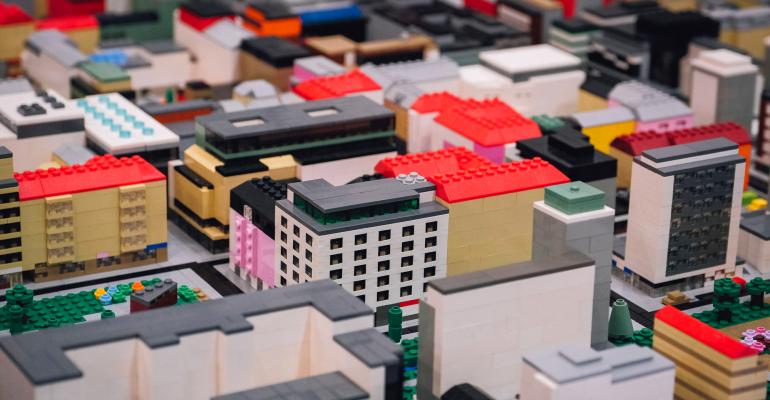(Bloomberg) -- The fund managing the $20 billion fortune of the richest members of the Lego family says it will take years before the pandemic’s impact on office real estate is known.
With a full return to pre-pandemic office life looking unlikely, real estate investors are trying to figure out what that means for their portfolios.
Soren Thorup Sorensen, the chief executive of the Lego family’s Kirkbi fund, said in an interview that he thinks “it will take a couple of years before we know.”
More than a year after the coronavirus pandemic hit Europe, some of the region’s biggest cities are still shadows of their former thriving selves. In London and other major U.K. cities, the number of people actually working in offices is at roughly a third the pre-pandemic level, according to data provided by Metrikus. Some studies even suggest workers are more productive when at home, and not all employers are forcing staff back to the office.
Kirkbi is “looking at average work-from-home hours for various countries and various cities to get a full picture we can monitor,” Thomas Lau Schleicher, chief investment officer, said during the same interview.
Kirkbi has built a $1.4 billion real estate portfolio comprised of mostly office properties in London, Munich, Hamburg and Copenhagen, as well a number of Swiss cities. The value of those assets grew about 3% last year. Sorensen says that, for now, it doesn’t feel likely that prime locations will suffer signification valuation blows.
What Bloomberg Intelligence Says...
”Work practices will be much more flexible in future - as we know remote working is effective - which changes office space requirements. We expect less employee densities but more collaborative space and temporary use areas. In cities where the commute is short, relatively pleasant and environmentally friendly, like Zurich or Frankfurt people may continue using offices. In major cities like London where the commute can be long employers may have to weigh up the need to attract talent with employees views on office work.”
-- Sue Munden, senior property analyst
“If we look at London, what does it mean if people work from home 1 or 2 days a week: that will have some structural effects,” Sorensen said.
“But real estate in attractive locations will continue to have significant value, especially in a low-interest level environment,” he said. “We can’t rule out that over a period of time we will see an effect, but it’s too soon to conclude.”
At Lego itself, office space is treated as a precious commodity reserved for the toy maker’s own definition of an essential worker: the creative designers. Lego CEO Niels B. Christiansen said in March that the company’s toy brick “designers simply must be in the office,” because “they need to be where they have access to all the material they need for the creative process, including the Lego bricks.”
That means administrative staff need to work from home, “to make room for the Lego designers,” he said.
Kirkbi reported a 62% decline in profits last year despite generating most of its returns from Lego, which delivered record results in 2020. The fund is positioned to do better in 2021 amid an expectation that economies will bounce back, Sorensen said.
“There are always a lot of clouds on the horizon, but it’s difficult to just act on those when you have a very large investment portfolio,” he said. “The bottom line for us is that we don’t try to time the market.”
© 2021 Bloomberg L.P.





